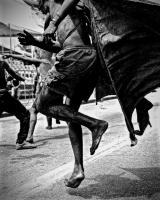 There is a present-day tendency to retreat into the realms of dystopia, of catastrophe and disaster, of failed states and fascism, of environmental collapse and economic apocalypse. This tendency is neither wrong nor mistaken. Yet it is often suffocating, only adding to the pressurized dread of the era, offering no antidote to the plague of cynicism, the chokehold of hopelessness, the drift, or, perhaps, the plunge, into a miasma of pessimism and hopelessness. Of course, there are other tendencies, other possibilities, other ways forward. Here, we briefly mention five recent books, loosely grouped under the banners of anarchism, autonomy, and utopia, that propose better worlds to come – as better must come.
There is a present-day tendency to retreat into the realms of dystopia, of catastrophe and disaster, of failed states and fascism, of environmental collapse and economic apocalypse. This tendency is neither wrong nor mistaken. Yet it is often suffocating, only adding to the pressurized dread of the era, offering no antidote to the plague of cynicism, the chokehold of hopelessness, the drift, or, perhaps, the plunge, into a miasma of pessimism and hopelessness. Of course, there are other tendencies, other possibilities, other ways forward. Here, we briefly mention five recent books, loosely grouped under the banners of anarchism, autonomy, and utopia, that propose better worlds to come – as better must come.
To read
18.03.2021 | by The Public Archive